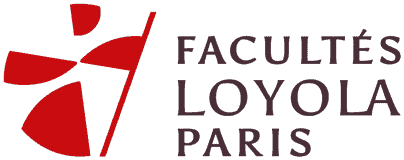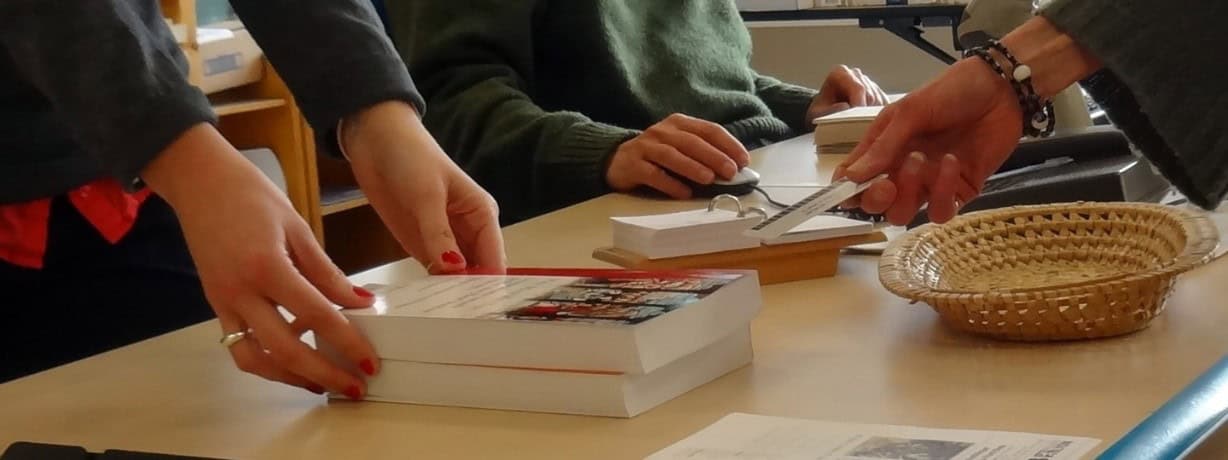Research

Today, the Facultés Loyola Paris continue the rich tradition of research in patristics of the French Jesuits, which has had a profound impact on the life and Catholic theology of our time. Their Jesuit inspiration naturally leads it not only to Ignatian spirituality, but also to a vibrant interdisciplinary reflection on ethical issues, especially in relation to ecological and biomedical questions. A group of researchers at the Facultés Loyola Paris is developing innovative approaches to theology by listening attentively to people in great difficulty or on the margins of society. Researchers in philosophy are involved in new approaches to phenomenology, in the study of mysticism, and in the anthropological questions raised by neuroscience. And many other subjects…
Currently at the Facultés Loyola Paris :
50 staff active in research / 45 PhD students
Examples of research seminars:
- The narrative exegesis of the Bible
- Theology learning from the poorest and most marginalized
- The book of Isaiah in patristic exegesis
- Algorithms and decision-making: anthropological, spiritual, ethical and societal issues
- Forgiveness in all its forms
- Men and women in the Church
Recent theses include:
- Innovative philosophical studies of Michel Henry, and Paul Ricoeur
- Explorations of the future of palliative care, and of a political theology adapted to the Anthropocene
- Theological reflections on the apparitions at “Rue du Bac”, and on the notion of vulnerability
- The narrative exegesis of the Bible
- Theology learning from the poorest and most marginalized
- The book of Isaiah in patristic exegesis
- Algorithms and decision-making: anthropological, spiritual, ethical and societal issues
- Forgiveness in all its forms
- Men and women in the Church
- Possible reconciliation. Towards a philosophical anthropology of reconciliation based on the philosophy of Paul Ricoeur
- The theology of Scriptural inspiration
- Daughters and sons of God: a way of articulating baptismal equality and sexual difference
- Unveiled to the smallest. A theology that listens to the poorest
- The moral theology of Pope Francis
Jesuit inspiration
The Facultés Loyola Paris draw on the heritage of great French Jesuit thinkers such as: Henri de Lubac, Jean Daniélou, Joseph Moingt and Christoph Theobald in theology; Xavier Léon-Dufour and Paul Beauchamp on the Bible; Gaston Fessard, François Marty, Pierre-Jean Labarrière and Paul Valadier in philosophy; Michel de Certeau on spirituality and cultural studies.
Research resources
3 specialized chairs
- Chair of Ecumenical Theology: Teaching and research to facilitate mutual understanding between Christian churches and to promote ecumenical dialogue.
- Jean Rodhain Chair: Courses and research on charity and justice in the spirit of Mgr Jean Rodhain, founder of Secours catholique (Caritas France), in collaboration with the Jean Rodhain Foundation.
- Karl Rahner Chair: Teaching and research about the theology of Karl Rahner (1904-1984), one of the most important jesuit theologian of the 20th century.
Two series of publications : Editions Facultés jésuites de Paris ; Cahiers Médiasèvres
Two international research journals : Recherches de sciences religieuses (RSR) ; Archives de Philosophie
A large library
- 440 000 volumes, 7,000 of which are on open access
- 850 periodicals in philosophy and theology
- One of the most important private books collection in France
- Accessible to researchers
- Heritage and university collections, including:
- Books from the 15th and 16th century
- the Jesuitica collection: 40,000 volumes on the history of the Society of Jesus and on Ignatian spirituality /
- the Philosophy collection: 40,000 volumes, with particular strengths in French and German philosophy and 17th century European philosophy.
Membership of the Kircher Network
The Facultés Loyola Paris actively contribute to various research projects among European Jesuit faculties. In particular, they participate in the work of the Kircher Network (the European network of Jesuit institutions of higher education), especially on the themes of anthropology, Ignatian studies, ecology and the dialogue between science and religion.



